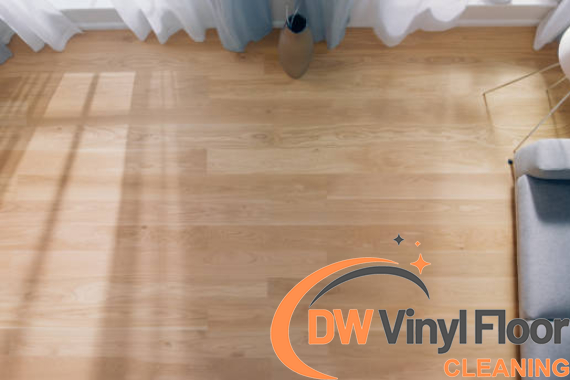
Effective vinyl floor cleaning methods are crucial for preserving the aesthetic appeal and longevity of your vinyl flooring investment. A well-maintained vinyl floor not only looks great but also resists stains, scratches, and other damage, saving you time and money in the long run. Many homeowners struggle with finding the right approach to cleaning vinyl floors without harming the finish or causing streaks. This guide will offer you with the optimal practices for achieving a sparkling clean and beautifully maintained vinyl floor. We’ll cover various cleaning methods, from everyday maintenance to tackling stubborn stains, providing actionable steps for optimal outcomes.
Understanding Your Vinyl Flooring Type
varied Vinyl Flooring Types and Their Specific Needs
Vinyl flooring comes in various forms, each with unique characteristics. Understanding the type of vinyl you have is critical for choosing the right cleaning method. Some vinyl floors might be more sensitive to harsh chemicals than others, so proper identification is paramount. Some vinyl floors attribute a protective layer or a special surface finish which must be respected.
determineing Common Vinyl Flooring Types
Vinyl plank flooring, for example, is usually a laminate-like material that requires gentle cleaning. Solid vinyl, on the other hand, is more durable, yet may react variedly to varied cleaning agents. studying your specific vinyl flooring type will dictate the safest cleaning strategies. By properly understanding the type of flooring you have installed, you can select the optimal plan for cleaning and maintaining its condition.
Choosing the Right Cleaning Supplies
Essential Cleaning Supplies for Vinyl Floors
Cleaning vinyl floors doesn’t require a vast array of supplies. A few essential tools can make a big difference in your cleaning process. These may include microfiber cloths, a mop, appropriate cleaning solutions (often non-abrasive), and a bucket. A dedicated squeegee or drying towel can help in keeping the floor clean and shine. Avoid harsh chemicals, abrasive scrubbers, or anything with bleach as these will damage the surface. Choosing quality microfiber cloths will help in not only removing dirt but retaining the sheen of the floor as well.
Avoiding Harsh Chemicals
Harsh chemicals can damage the protective layer on your vinyl floor, causing discoloration, dulling, or even pitting. Always check the manufacturer’s instructions for recommended cleaning solutions and avoid anything with bleach or strong acids. A simple solution of water and mild dish soap is often effective for everyday cleaning. By respecting the specific instructions of your vinyl flooring manufacturer, you can maintain its integrity and beauty while also minimizing the risk of scratches and other damages.
Mastering the Cleaning Technique
Gentle Scrubbing for optimal outcomes
The key to effective vinyl floor cleaning is gentle scrubbing. Using a soft-bristled brush or a microfiber mop, scrub any dirt or grime gently. Avoid harsh scrubbing, as it can cause scratches or damage the surface.
Prevent water damage!
Excess water can soak into gaps in your vinyl, which can cause swelling or mold. If using a mop, ensure you wring it out thoroughly and clean the floor using a gentle back-and-forth motion. Always focus on small sections to avoid water accumulation, and remember to allow the floor to air dry completely to prevent any remaining moisture from damaging the floor.
Regular Cleaning Schedule
Regular cleaning will help keep your vinyl floors in top condition. Try to clean them at least weekly, or more often if needed. This will prevent dirt and grime from building up, making deep cleaning easier and less frequent.
Dealing with Stubborn Stains and Marks
determineing and Treating Common Stains
Dealing with tougher stains can feel daunting but with the right approach, they can be dealt with effectively. For sticky substances or spills, blot the stain immediately and use a gentle cleaner. Vinegar, for instance, can be effective for dissolving tough stains, but always check the product compatibility with your vinyl flooring.
Using Specialized Stain Removers (if necessary)
For particularly stubborn stains, consider using specialized vinyl floor stain removers. Always test these cleaners in an inconspicuous area first, ensuring they don’t harm the finish. Consult the manufacturer’s instructions for the specific application of the product and its safe application.
Maintaining a Pristine Shine
Polishing for a Gleaming Finish
Maintaining a shine on your vinyl flooring can be achieved through proper polishing. Apply a vinyl floor polish designed for your specific type of flooring, following the manufacturer’s instructions carefully. This will help keep the floor looking new, but be sure not to use abrasive materials to maintain this shine.
Regular Inspection and Maintenance
Regular inspection of your vinyl floors is crucial. Inspect for any damage, like scratches or scuffs, promptly to avoid further issues. Addressing minor damage quickly can help maintain the beauty and integrity of your vinyl flooring investment, reducing the need for extensive repairs.
Q2: How often should I clean my vinyl floors?
A2: It’s generally recommended to clean your vinyl floors at least once a week, or more often if necessary, depending on the level of foot traffic. Daily or even twice daily cleaning might be necessary if you have very high traffic areas. By following a regular cleaning schedule, you can keep your floors looking their optimal and maintain their protective layers.
In conclusion, effective vinyl floor cleaning requires a multi-faceted approach, combining the right tools, cleaning agents, and techniques. Regular cleaning, focusing on prevention and thorough scrubbing, is key to maintaining the beauty and longevity of your vinyl flooring. Following these steps will ensure your floors stay looking their optimal and will keep you from making costly repairs! If you have any lingering querys or face any challenges, feel complimentary to consult the FAQ section or reach out to a professional cleaning service for personalized guidance.